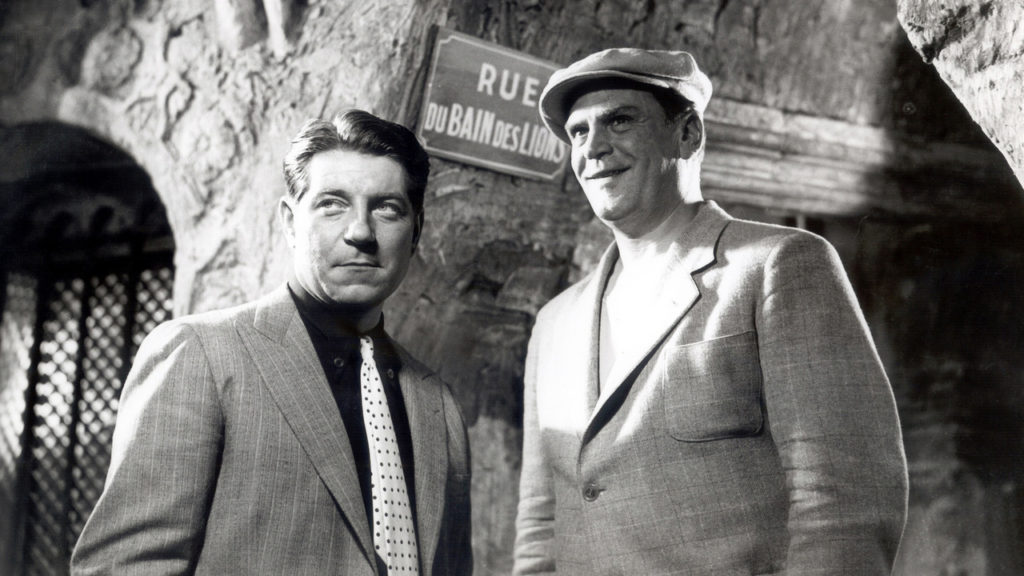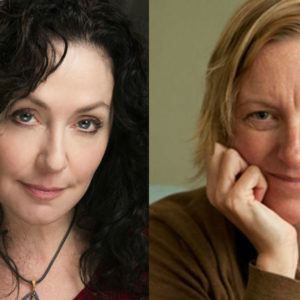To date Algerian publishers have focussed mostly on the literary novel rather than crime fiction. That doesn’t mean nobody is writing crime fiction in Algiers, just that it has long had trouble breaking out as a recognized genre in the country. This, according to Nadia Ghanem’s useful Machaho Tellem Chaho blog on Algerian literature, means that even in Algiers many readers think there really is no tradition of crime fiction in their city; subsequently this means that foreign publishers simply aren’t looking to Algeria for possible translations. The situation wasn’t helped by the decade-long civil war in the 1990s which depressed the entire publishing industry. All of which is a bit of a problem for those of us looking for Algerian crime writing in English.
However, as Nadia Ghanem writes, there has been crime fiction coming out of Algiers since the 1970s in both Arabic and French. Unfortunately, English translations are few and far between of this earlier work. For those of us trapped in the English language (although to a lesser extent for those who read French) the story of Algiers crime really starts with Yasmina Khadra and the Inspector Llob series. Yasmina Khadra is the perhaps surprising pen name of the author Mohammed Moulessehou, a former officer in the Algerian army.
Moulessehoul adopted his wife’s name as a pseudonym to avoid military censorship in the heightened tense atmosphere of 1990s Algiers. He’s written over 40 novels, been translated into multiple languages and is, internationally at least, Algeria’s biggest literary star. He has set many books outside Algeria, for instance in Afghanistan, Iraq and Israel—The Sirens of Baghdad (2007), The Swallows of Kabul (2004) and The Attack (2007), respectively. The first books in his Inspector Llob series were written during the Algerian Civil War and reflect may of the violent internal conflicts of Algiers society during that chaotic and violent time. Morituri (1997), Double Blank (1997), Autumn of the Phantoms (1999) and Dead Man’s Share (2004) are the four Inspector Llob books. To give you a sense of Llob’s noirish Algiers here is Morituri’s list: pimps and fundamentalists, prophets and fakirs, sharks and visionaries, and locations like drug-dealer dens and arms-trafficker’s narco-palaces. Morituri incidentally, is Latin for “those who are about to die.” In 1990s Algiers kidnapping, car bombings and corruption are rife while crime, politics and religious extremism are all interlinked. Double Blank confronts the Islamic fundamentalist violence plaguing Algiers in that decade. In Autumn of the Phantoms Llob is fired for disloyalty and so forced off the Algiers police force returning finally in Dead Man’s Share to confront political corruption in the city. Llob is by far the best introduction to Algiers’s underbelly.
And so a few titles that make a side trip to Algiers…
- Henning Mankell’s The Fifth Woman (2000) is a Kurt Wallander mystery that begins with four nuns and an unidentified fifth woman discovered with their throats slit in an Algerian convent.
- Katherine Neville’s The Eight (1988) is a long and wide-ranging thriller from the bestselling American thriller writer. A precious chess set that once belonged to Charlemagne is broken up and scattered across the world during the French Revolution. Two centuries later Neville’s heroine, computer expert Catherine Veils, travels the globe finding the pieces, including to Algiers and the Algerian Sahara.
- Robert Irwin’s The Mysteries of Algiers (1988) is not strictly a crime novel, but does deal with violence in the city in the late 1950s and the Algerian struggle for independence from France.
- For those who like their crime a little more “golden age” there is Francis Durbridge’s professional crime writer and amateur sleuth Paul Temple in East of Algiers (1959), a later book in the long-running Temple series and which in fact mostly takes place in Tunis.
Quite a few Algerian authors do write in French while others, given the historic relations between the two countries, are translated into French for that market. From French into English then is another leap, one made by Anouar Benmalek’s Lovers of Algeria (2001). A Swiss woman, Anna visits a cemetery in present-day Algiers searching for two names, those of her children, murdered more than 40 years previously by the FLN (National Liberation Front—the organization that fought for Algerian independence from the French). She wishes to unravel their story and the truth about her husband and their father who was falsely branded a traitor to the cause of independence.
There are French crime writers such as François Joly and Maurice Gouiran who have written thrillers set against the backdrop of the Algerian War of Independence (1954-1962) and are critical of France’s colonial occupation of the country. Sadly, neither have been translated as yet. When I ask Algerians which crime writers we should be reading they reel off likely names— Mohamed Benayat, Boualem Sansal, Anouar Brahem and Adlène Meddi, among others. But there are, to date at least, no English translations of these writers available.
Of course, the best-known translated Francophone writer born in Algeria is Albert Camus. Camus was born in what was then French Algeria in 1913 and by the time of the Second World War was an established author within the existentialist-absurdist school of writing, along with Jean-Paul Sartre and Simone de Beauvoir. L’Etranger (variously The Stranger or The Outsider in English) was published in 1942 and concerns Meursault, a Frenchman in Algiers who murders a local Arab man, is tried for the crime, and sentenced to death. The book is Meursault’s first-person narrative, divided into two parts, before and after the murder. Meursault’s stabbing of the man is both casual and, although he is convicted, not particularly condemned by the French-controlled state or by his friends.
A response to L’Etranger is Kamal Daoud’s The Meursault Investigation (2013), which looks at the case from the point of view of the murdered Algerian, virtually absent in any detail from Camus’s novel and never named. Daoud does name him (Musa), reveals him as a real person, and describes the Algierian world he inhabited. Daoud follows the lives of the murdered man’s family and friends through the War of Independence and into the 1960s. Daoud has described his novel as “a dialogue with Camus.” He treats the case as a real one, approaching it as a nonfiction crime. In French, as Meursault, contre-enquête, the novel won the 2015 Prix-Goncourt, France’s most prestigious literary prize. To read the two novels, one after the other, is an interesting and thought-provoking experience.

Perhaps one of the best images we have of pre-World War Two colonial Algiers is purely celluloid—the 1937 Jules Duvivier film starring Jean Gabin and Mireille Balin, Pépé le Moko. Pépé (Gabin) is a Moko (slang for a gangster hailing from the French city of Toulon) hiding out from the authorities in the Casbah of Algiers. It is a masterpiece of French poetic realist filmmaking; the predecessor in many ways of the more commonly known (in America at least) film noir. The movie contains shots of the genuine rabbit warren of the Algiers Casbah and is based on the book of the same name by the Parisian writer Henri La Barthe. The movie is a classic. Graham Greene, reviewing it for The Spectator, wrote: “One of the most exciting and moving films I can remember seeing”; Hollywood remade it with Charles Boyer and Heddy Lamaar as Algiers (1938—while not as good as Gabin-Balin to be fair, not that bad either), and then a pretty dire musical called Casbah in 1948, best forgotten. Author La Barthe (also a journalist, a Paris P.I. and a major force behind the wonderful French true crime magazine of the 1930s, Détective) has never been translated into English either.
We need more of Algiers.

















